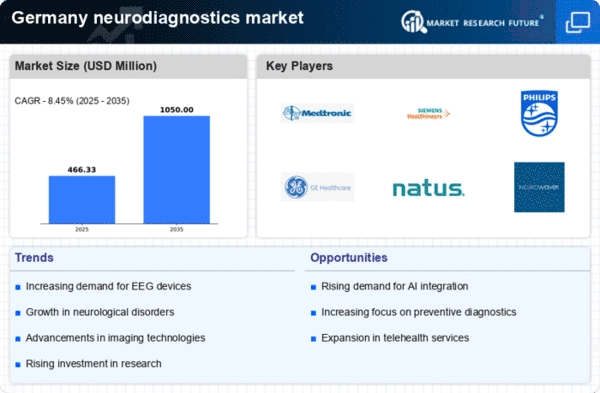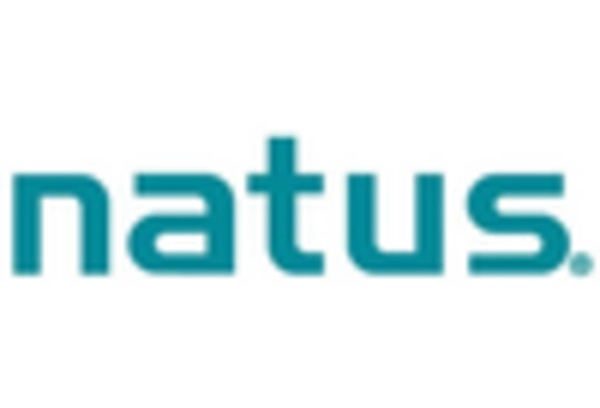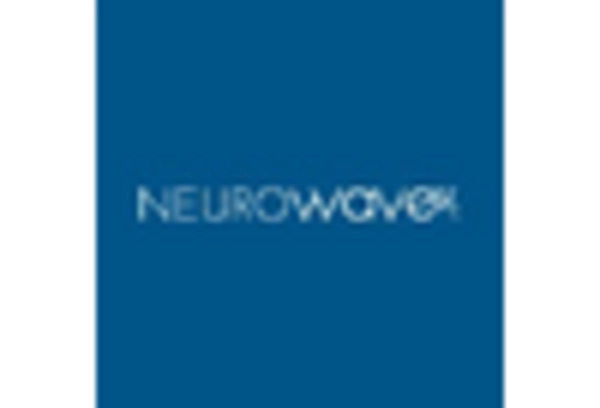Government Initiatives and Funding
Government support plays a crucial role in the development of the neurodiagnostics market in Germany. Various initiatives aimed at enhancing healthcare infrastructure and promoting research in neurodiagnostics are currently underway. The German government has allocated substantial funding to support research and development in medical technologies, including neurodiagnostics. For instance, funding programs have been established to encourage collaboration between academic institutions and industry players. This financial backing is expected to foster innovation and accelerate the introduction of new diagnostic tools, thereby enhancing the overall market landscape. As a result, the neurodiagnostics market is likely to benefit from increased investment and resources dedicated to advancing diagnostic capabilities.
Growing Awareness of Early Diagnosis
There is a notable shift towards the importance of early diagnosis in the management of neurological conditions in Germany. Increased awareness among healthcare professionals and patients regarding the benefits of early intervention is driving demand for neurodiagnostic services. Early diagnosis can lead to timely treatment, which may improve patient outcomes and reduce healthcare costs in the long run. This trend is reflected in the rising adoption of neurodiagnostic tests and imaging techniques, which are essential for accurate diagnosis. Consequently, the neurodiagnostics market is experiencing growth as stakeholders recognize the value of early detection and the role of advanced diagnostic technologies in achieving this goal.
Aging Population and Healthcare Demand
Germany's aging population is a critical factor driving the neurodiagnostics market. As the demographic shifts towards an older population, the prevalence of age-related neurological disorders is expected to rise. This demographic trend is likely to increase the demand for neurodiagnostic services, as older adults are more susceptible to conditions such as dementia and stroke. The healthcare system is thus under pressure to provide adequate diagnostic services to meet the needs of this growing patient demographic. Consequently, the neurodiagnostics market is poised for growth, as healthcare providers seek to enhance their diagnostic capabilities to cater to the increasing demand from an aging population.
Technological Integration in Healthcare
The integration of advanced technologies into healthcare systems is significantly influencing the neurodiagnostics market in Germany. Innovations such as artificial intelligence (AI), machine learning, and telemedicine are being increasingly utilized to enhance diagnostic processes. These technologies enable more accurate data analysis and improve the efficiency of neurodiagnostic procedures. For example, AI algorithms can assist in interpreting neuroimaging results, leading to quicker and more precise diagnoses. As healthcare providers adopt these technologies, the neurodiagnostics market is likely to expand, driven by the demand for more sophisticated and efficient diagnostic solutions that leverage technological advancements.
Rising Prevalence of Neurological Disorders
The increasing incidence of neurological disorders in Germany is a primary driver for the neurodiagnostics market. Conditions such as Alzheimer's disease, Parkinson's disease, and multiple sclerosis are becoming more prevalent, affecting a significant portion of the population. According to recent estimates, approximately 1.6 million individuals in Germany are living with dementia, which underscores the urgent need for effective diagnostic tools. This growing patient population is likely to propel demand for advanced neurodiagnostic technologies, as healthcare providers seek to improve diagnostic accuracy and patient outcomes. The neurodiagnostics market is thus positioned to expand, driven by the necessity for innovative solutions that can address the complexities of these disorders.
















